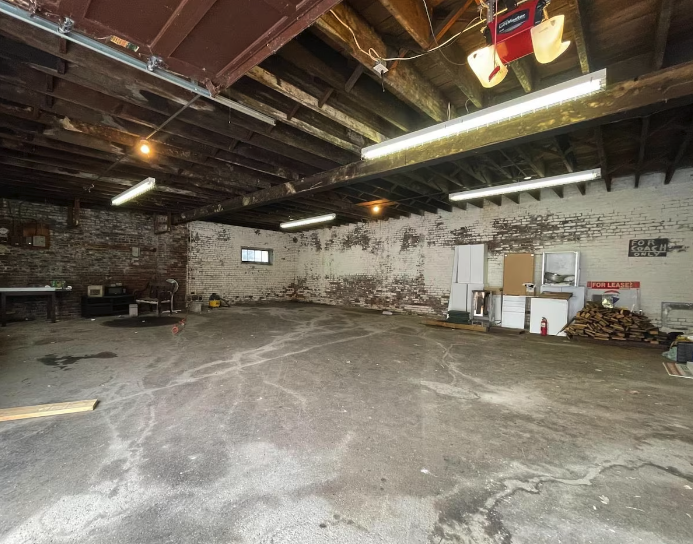In a recent article by the Globe and Mail it talks about a real estate listing that used AI-generated images in Toronto that depicted a plain garage as a stylish loft, sparking debate over the accuracy of such 3d renderings. Josh Kellendonk, a software developer planning to move to Toronto, stumbled upon a listing on Realtor.ca that showed a garage located at 194R Chatham Ave.
Initially attracted by the images, he was surprised to find that the property was just a simple brick garage, a stark contrast to the polished representations shown online.

194R Chatham Ave. in Toronto is a single storey 46- by- 40-foot brick garage. - RE/MAX HALLMARK REALTY LTD.
The property in question is a single-story garage situated on a laneway, sized at 46 by 40 feet. Out of the 21 photos in the listing, which had an asking price of $588,000, only six depicted the actual state of the garage with its bare brick walls and peeling paint. The remaining 15 photos were AI-generated images that transformed the space into a sleek, one-bedroom loft, complete with large windows, polished concrete floors, and modern finishes. Some images even altered the structure's layout and materials significantly.
Josh Kellendonk filed a complaint with the Real Estate Council of Ontario (RECO), arguing that the images were misleading and "divorced from reality," citing inconsistencies in the depiction of the garage’s interior dimensions.

One of 15 elaborate AI renderings imagining what the space could look like. - RE/MAX HALLMARK REALTY LTD
In interview with James Dylan Lloyd, business development manager of BellaStaging.ca based in of Vancouver, he says “There’s a lot of rising demand and somewhat of a learning curve as people are adopting it,” said “This one in particular the best example of the furthest end of the spectrum.” Mr. Lloyd explained that his company, Bella Virtual Staging, adds watermarks to any significantly altered images to indicate modifications. Although they have tried using AI for these alterations, the technology often introduces inaccuracies—such as altering the appearance of power outlets or replacing a view of a bushy exterior with a blue sky. He expressed concerns about the lack of control over AI outputs, noting that once an image is altered, it often presents a completely different scene from what actually exists. Because of these issues, Bella prefers to rely on human editors and designers who maintain more precise control over image edits.
Pierre Leduc from the Canadian Association of Realtors mentioned that there are currently no national regulations specifically addressing the use of AI in real estate photos. Realtors are expected to ensure accuracy in their listings and avoid misrepresentations, as dictated by the Trust in Real Estate Services Act (TRESA) and local codes of ethics.
Yuriy Setko, another realtor, emphasized the importance of maintaining integrity in real estate imagery, noting that he declines requests to make misleading alterations to images, such as removing visible buildings from window views.

3D Rendering for Real Estate - Bellastaging.ca
RECO advised that both buyers and agents should exercise due diligence by physically viewing properties to verify details. The agency stressed that if images are enhanced to show potential modifications, this should be clearly indicated in the listing.
Despite the explanation from the listing agent and the general acceptance of virtual staging in the industry, the extensive modifications depicted in the Chatham garage’s AI images raise concerns about the potential for misrepresentation in real estate listings. Some industry professionals believe that even with disclaimers, the extent of alteration seen in this case might still be misleading.














